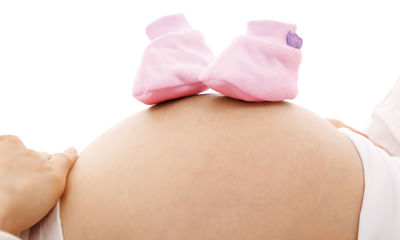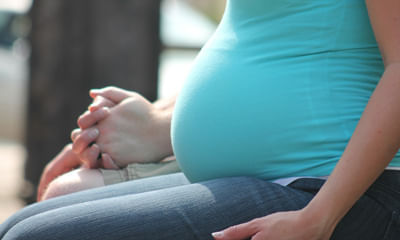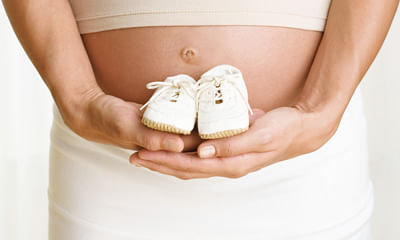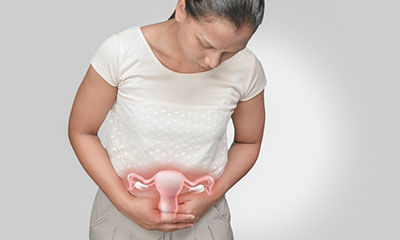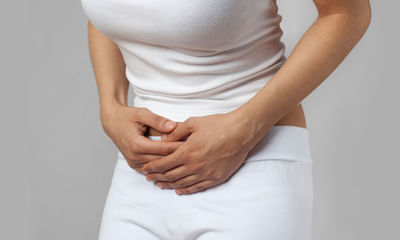Get the App
For Doctors
Login/Sign-up
Health Feed
Find Doctors
Health Packages
AllQ&AsTipsQuizzes
Hysterectomy Questions
Asked for male, 52 years old from Faridabad
Share
Bookmark
Report
Gynaecologist•
Male infertility can be caused due to obstructed flow in the reproductive tract which causes difficulties in ejaculation. Inability of the testicles to produce sperm due to factors such as varicoceles or other treatments like chemotherapy that may impair sperm production. Hormonal imbalance or abnormalities like irregular testosterone production. Abnormal physical conditions that cause impaired sperm quality or function. Exposure to industrial chemicals or radiation.
29 people found this helpful
Asked for male, 52 years old from Faridabad
Share
Bookmark
Report
Gynaecologist•
1) changing lifestyle factors (improving lifestyle that also includes stopping a few medications, staying away from harmful substances, taking care of the timing and frequency of intercourse, and regular exercising, may help in improving fertility.) 2) medications (medications are prescribed by your doctor to improve sperm count and likelihood for achieving a successful pregnancy.) 3) surgery (surgery may be able to reverse a sperm blockage and restore fertility.) 4) sperm retrieval (if ejaculat...more
8 people found this helpful
Asked for male, 52 years old from Faridabad
Share
Bookmark
Report
Gynaecologist•
Infertility can be prevented by making few changes in the lifestyle. This can help in maintaining your reproductive health in a better way. These are: less caffeine intake, maintain healthy weight to avoid hormonal imbalances, maintain balanced diet, get involve in physical activities, avoid excessive smoking, avoid excessive intake of alcohol and drugs, practice safe sex.
8 people found this helpful
Asked for male, 52 years old from Faridabad
Share
Bookmark
Report
Gynaecologist•
Infertility treatment in females can be treated by few therapies but this only works if the issue is not severe. If not, treatments required include: 1) stimulating ovulation with fertility drugs: medications are prescribed for the regulation of ovulation. 2) intrauterine insemination (iui): it is a procedure where healthy sperms are directly placed in the uterus at the time when the ovary releases one or more eggs. 3) surgery to restore fertility: endometriosis, larger fibroids, and pelvic adhe...more
Asked for male, 52 years old from Faridabad
Share
Bookmark
Report
Gynaecologist•
Asked for male, 52 years old from Faridabad
Share
Bookmark
Report
Gynaecologist•
There are no visible symptoms for infertility, apart from the inability to get pregnant. Few symptoms of infertility include: irregular, painful, or heavier/lighter than usual flow. Too heavy or too light flow during the menstrual cycle. Hormonal changes such as acne flare-ups, weight loss or gain. Underlying medical conditions. Issues with sexual function, such as sex being painful, reduced sex drive.
35 people found this helpful
Asked for male, 52 years old from Faridabad
Share
Bookmark
Report
Gynaecologist•
There are various factors affecting the infertility and causes depending on the following reasons. 1- ovulation disorders (hormonal disorders such as pcos, hyperprolactinemia, excess thyroid hormone or too little also affects the menstrual cycle causing infertility.) 2- cervical abnormalities (abnormality of the polyps or the shape of the uterus and noncancerous uterus.) 3- fallopian tube blockage (this results in pelvic inflammatory disease that is caused due to sti.) 4- primary ovarian insuffi...more
20 people found this helpful
Health Query
Share
Bookmark
Report
Asked for female, 27 years old from Lucknow
Share
Bookmark
Report
Asked for male, 52 years old from Faridabad
Share
Bookmark
Report
The percentage of women getting pregnant after the endometriosis surgery ranges between 75% to 80%. Most women will become pregnant after the surgery without any health issues or medication. It, however, may happen in some rare cases where medical assistance would be required for carrying pregnancy or some complications may occur while planning a baby. If a woman is facing issue in getting pregnant within six to 12 months after the surgery, it is recommended to go for vitro fertilization.
11 people found this helpful
Book appointment with top doctors for Hysterectomy treatment
View fees, clinic timings and reviews
Ask a free question
Get FREE multiple opinions from Doctors
posted anonymously


